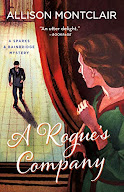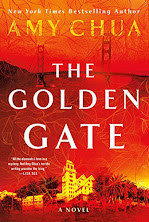This debut novel by Ritu Mukerji was nominated for a couple of prestigious mystery awards and I agree that it is a fine plot, setting and cast of characters. Set after the Civil War in Philadelphia as the city is becoming a powerhouse of industry, our protagonist is a woman doctor when women in medicine still faced enormous headwinds from the field. Dr. Lydia Weston is a professor and practicing clinician at the Woman's Medical College of Pennsylvania. When a young woman patient, Anna Ward goes missing and a body identified as Anna is pulled from the Schuylkill River, Lydia becomes involved in the investigation of her death. Not only must Lydia prove herself to skeptical male doctors, but also to the police who share in the sentiment that women are not fit to practice medicine, much less help solve what turns out to be a murder.
The Library Journal asserts "On the surface, this debut by Mukerji, herself a medical doctor, appears to be a mystery about the death of a working-class servant, but it's much more, as it examines women's rights, social conditions, and medicine in Philadelphia just a decade after the Civil War." Booklist praises "Lydia assist[s] police officers Volcker and Davies with their investigation, discovering unsavory events in some of Philadelphia's wealthy families. Lydia herself is in danger as a result. This well-researched, historical-mystery debut by a practicing physician will appeal to readers who enjoy strong female characters and graphic clinical details."
Publishers Weekly also recommends the book. "Mukerji’s taut plotting and vivid depiction of the era’s medical practices and social customs will leave readers eager for a second installment." Kirkus compares Mukerji's writing favorably to other well know writers. "Mukerji, like Patricia Cornwell and Kathy Reichs, pulls the reader into fascinating and richly detailed forensic autopsies and blesses Weston with the instincts and determination to carry out a murder investigation as effectively as—or even better than—the police. This well-constructed narrative will also be appealing to literature lovers as Lydia finds solace in reading Tennyson, Browning, and Wordsworth. Mukerji writes with the assurance of a more seasoned novelist, and armchair sleuths can hope this is the beginning of a substantive new series. Like Jacqueline Winspear’s Maisie Dobbs, Lydia is a strong and indomitable woman who transcends her circumstances to become her true self and a crusader for social justice. This atmospheric novel heralds the arrival of a talented new writer and an unforgettable heroine."













